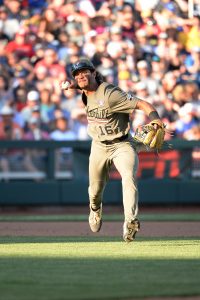The Yankees announced today that left-handed pitcher Aroldis Chapman has tested positive for COVID-19, showing mild symptoms (H/t Bryan Hoch of MLB.com). Needless to say, Chapman will be away from the team and won’t be allowed to participate in team workouts for the foreseeable future. He’ll need to test negative twice before he’s allowed to rejoin the Yankees.
Chapman’s positive test occurred after he passed the Yankees’ initial intake process and began team workouts, meaning that he had trained with the team at Yankee Stadium prior to testing positive. The Yankees conducted contract tracing after learning of Chapman’s results on Thursday, with James Wagner of The New York Times reporting that the process revealed no further positive tests.
The Yankees have also had Luis Cessa and DJ LeMahieu test positive for the virus, making Chapman the third Yankee to receive a diagnosis since the season reboot.
Should Chapman’s illness prevent him from playing in regular season games for the Yankees, veteran Zack Britton is the standout choice to take on the bulk of the closing duties in New York. That said, the unusual nature of this season will likely alter bullpen usage as we know it, so teams might be hesitant to rely on a single closer day in and day out. Nonetheless, look for Britton to pick up some slack in high-leverage innings.

